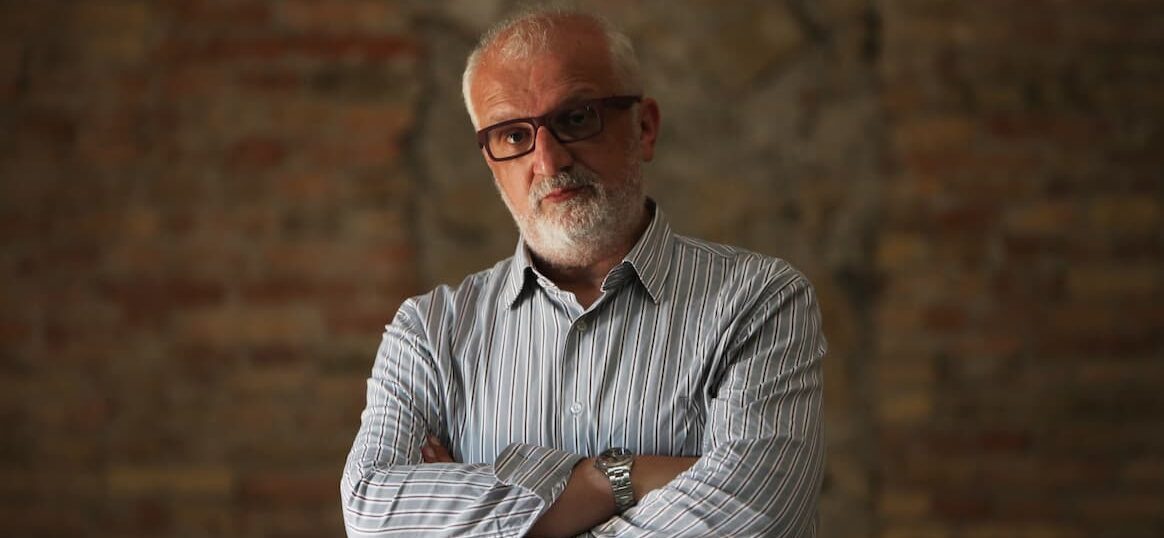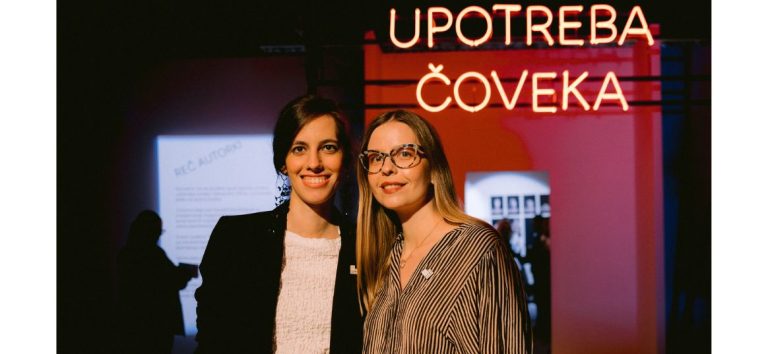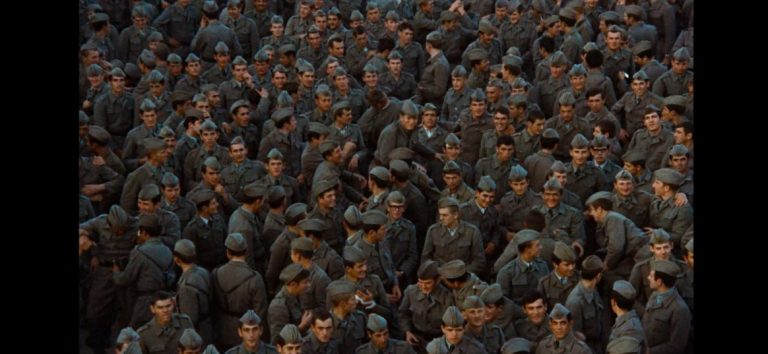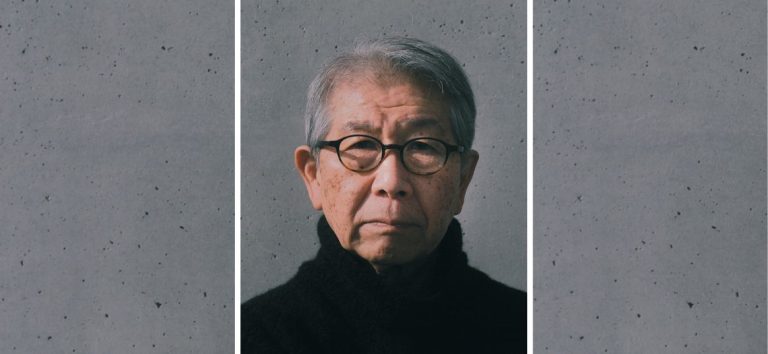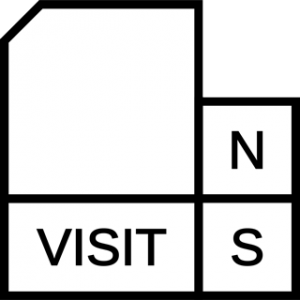‘The play Mephisto is an exciting story about ambition. It turns out that ambition is like medicine – if there is too little of it, a person becomes weak and sick; if there is too much of it, it poisons a man and everything around him. But how do you find the right measure? Many people tend to take shortcuts, even if the price is high. How many people wear masks?’ asks Haris Pašović, the director of this play, whose premiere will be seen by the Novi Sad audience and visitors to the European Capital of Culture on 12 July at the Serbian National Theatre.
Returning to the repressive and totalitarian context of pre-war and wartime Germany, the play Mephisto, based on the novel of the same name by the German writer Klaus Mann, is part of the European Capital of Culture ‘Fortress of Peace’ programme, one of the main goals of which is a critical analysis of the consequences of war conflicts.
Mann’s oeuvre is marked by this novel, which was published in 1936, at the height of the Nazi regime in Germany, and for which the writer was expelled from the country. The dramatic text of Mephisto, which we will see at the Serbian National Theatre, is performed by a large ensemble of this theatre’s Drama Department, including Aljoša Đidić, Gordana Đurđević Dimić, Lidija Stevanović, and guests such as Mirjana Karanović and Miodrag Krivokapić, and it follows the plot of the novel without any ‘intertextuality’, because the story, plot and characters are wonderfully written, strong, interesting and complex and grow into a universal and timeless story about absolute evil and rebellion and the resistance of the bravest members of a community.
This play has many characters and in the formal sense is a spectacle, which is also the form that best expresses the Nazi ambition, pomp, and monumentality that they insisted on and which was viewed as an expression of their power. The performance is a co-production of the Serbian National Theatre and the East West Center from Sarajevo.
Mephisto – a novel of a career. It shows the career of actor Hendrik Höfgen, whose rise to fame parallels the rise of the fascist state. Does the end justify the means? It seems we always have options…
A novel of a career – that is the subtitle of this masterpiece of world literature. What are we all willing to do for our success? Is there an ethical line we must not cross while pursuing our goals? Can we recognise the moment when humanity gets lost in the race for money and fame? Are we ready to endure these questions and critically look at our life path? These are important and challenging questions that this play contains.
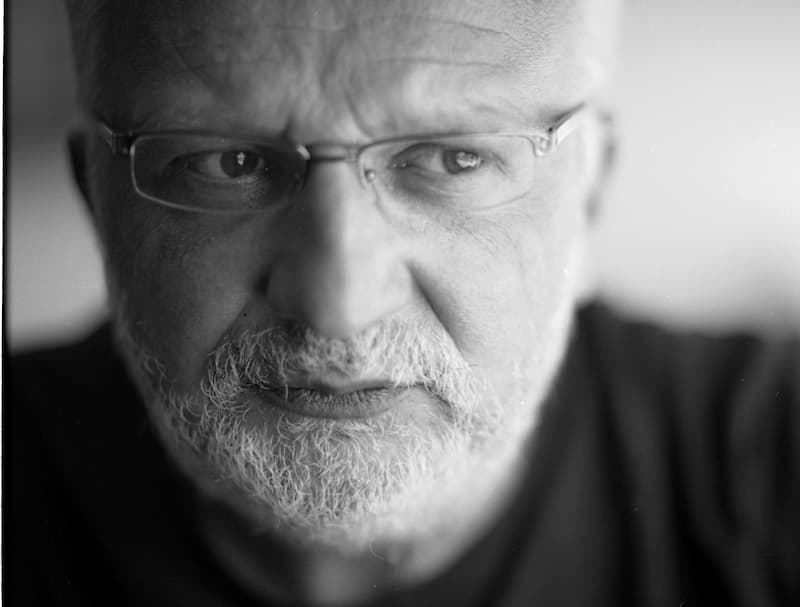
This is a topic for the ages – art and politics. Interweaving. It is a novel about a small man and a small artist who reaches the top of the artistic establishment through politics. Is he a victim or an active creator of Nazi ideology? Dedicated artist or obedient citizen?
There are characters in the novel who are also artists, but who refused to cooperate with the Nazis. Nazism was the point zero of evil in civilisation. There is no success, no ‘art’ that can justify cooperation with the Nazis. The Nazis killed more than 6 million Jews in gas chambers and caused the death of another eighty million people. They performed experiments on humans; planned to exterminate entire peoples and cultures; starved millions of people to death. They were villains beyond compare. To cooperate with them?
Mephisto was recently played at the Novi Sad Theatre. Now it’s also being staged in the Serbian National Theatre, how do you interpret that? Is it the times we live in, the political circumstances, or the general hypocrisy that art is in? What is it that provoked you to adapt this work?
I first read the novel 40 years ago and since then it has been at the top of my list of most important works. When Milovan Filipović, the Drama Department Director, invited me to direct at SNP, they quickly agreed, and Nemanja Milenković, director of ECoC, and Lazar Jovanov, programme manager, thought that the project fits perfectly into the ‘Fortress of Peace’ programme. ECoC has already achieved great success and I am happy that Mephisto is part of that great and important stor
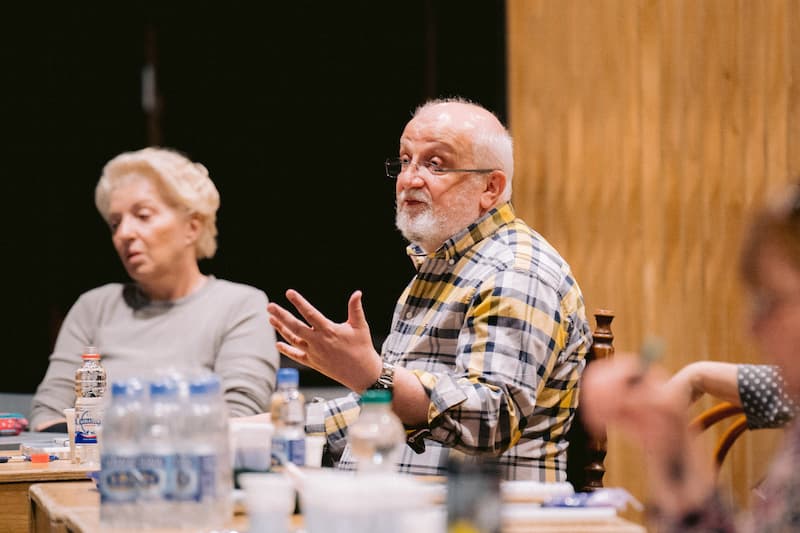
Your working principle is different compared to other directors, it is unusual since you have a large team with you, what was that workshop approach based on?
I’ve been working that way for 40 years, it’s the way I create, and mostly the actors and collaborators like that approach because it gives them a lot of freedom.
What, in your opinion, is the reach of art and how much can it contribute to the dialogue of reconciliation, to fostering a culture of peace?
It’s huge! And we have to work much harder on it.
Author: Gala Gajin
Photo: private archive, Salvatore Esposito, Vladimir Veličković

